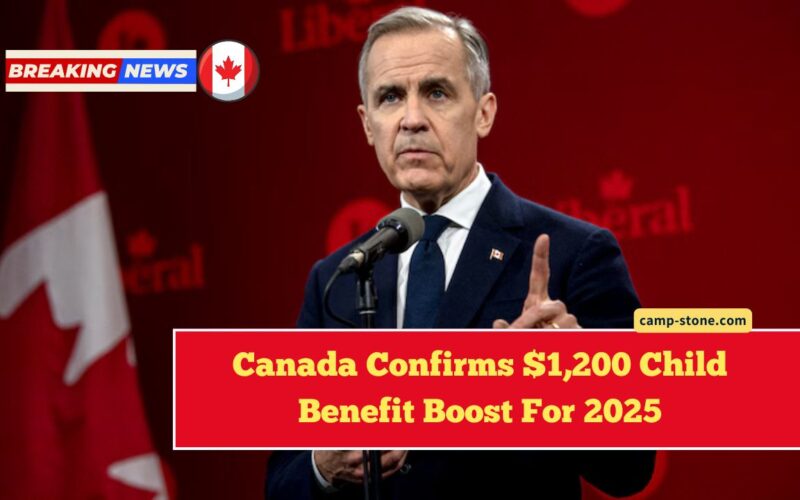To help families cope with rising living costs, the Canadian government has introduced a $1,200 Canada Child Benefit (CCB) Boost for 2025.
This tax-free supplement, administered by the Canada Revenue Agency (CRA), is designed to provide monthly financial relief to eligible families raising children under 18.
As childcare, food, and school-related expenses continue to rise, this enhanced benefit will support lower and middle-income households nationwide.
Here’s everything you need to know about the new CCB boost, including eligibility, payment schedule, and how to receive it.
What Is the $1,200 Canada Child Benefit Boost 2025?
The Canada Child Benefit is a tax-free monthly payment designed to help families with the cost of raising children.
For 2025, the government is adding an extra $100 per child per month—totalling $1,200 per year—on top of the standard CCB payment.
This boost will be paid from July 2025 through June 2026, in monthly installments, and appears as an additional line item on your regular CCB statement.
Benefit Breakdown by Family Size
| Number of Children | Regular CCB (Annual) | Additional Boost | Total Benefit in 2025 |
|---|---|---|---|
| 1 Child | Up to $7,437 | $1,200 | Up to $8,637 |
| 2 Children | Up to $14,874 | $2,400 | Up to $17,274 |
| 3 Children | Up to $22,311 | $3,600 | Up to $25,911 |
This boost targets inflation-hit households, particularly those in urban areas where child-related costs have soared.
Who Is Eligible for the $1,200 CCB Boost?
Eligibility for the 2025 CCB Boost follows the same criteria as the existing Canada Child Benefit. You must:
- Be a Canadian resident for tax purposes
- Be the primary caregiver of a child under 18
- File your annual tax return (including spouse/common-law partner)
- Meet income requirements (full benefit for families earning below ~$70,000 annually)
Higher-income families may still receive a partial benefit, depending on adjusted net income and number of children.
When Will the Payments Begin?
The $100 monthly boost per child will be paid from July 2025 to June 2026, alongside regular CCB payments. The additional amount will be clearly labelled on the CRA My Account portal or paper notice.
To receive the full benefit:
- File your 2024 taxes on time
- Update marital status, direct deposit info, and address
- Register any new children under your care with CRA
How to Apply for the Boost
There’s no separate application for the CCB boost. If you are already receiving the Canada Child Benefit, the extra funds will be automatically added to your account. New parents or newcomers to Canada should:
- Apply for CCB via CRA or birth registration services
- Ensure all children are listed on their account
- Submit necessary documents for verification
Why This Boost Matters in 2025
With daycare costs exceeding $900/month in many cities and annual school supply expenses averaging $500 per child, Canadian families are feeling the squeeze.
The $1,200 boost aims to bridge the affordability gap, ensuring that no child goes without essential support.
Beyond its monetary value, the benefit highlights a broader government commitment to child welfare and income equity, especially for low-income and single-parent households.
The $1,200 Canada Child Benefit Boost 2025 is a timely initiative that offers much-needed relief to families across the country.
With rising inflation and increasing childcare costs, this boost helps ensure that children get the support they need in a financially challenging year.
Parents should act now by filing their taxes and ensuring their CRA profiles are up to date. The sooner your details are confirmed, the sooner your payments will begin. This extra support could make a real difference for families across Canada in 2025.
FAQs
Who qualifies for the $1,200 CCB Boost?
Families who already receive the Canada Child Benefit and meet income, residency, and caregiving criteria are eligible.
How will payments be made?
The $100 per child per month will be included in regular CCB payments starting July 2025.
Is this benefit taxable?
No, the $1,200 CCB Boost is completely tax-free and does not count as taxable.
